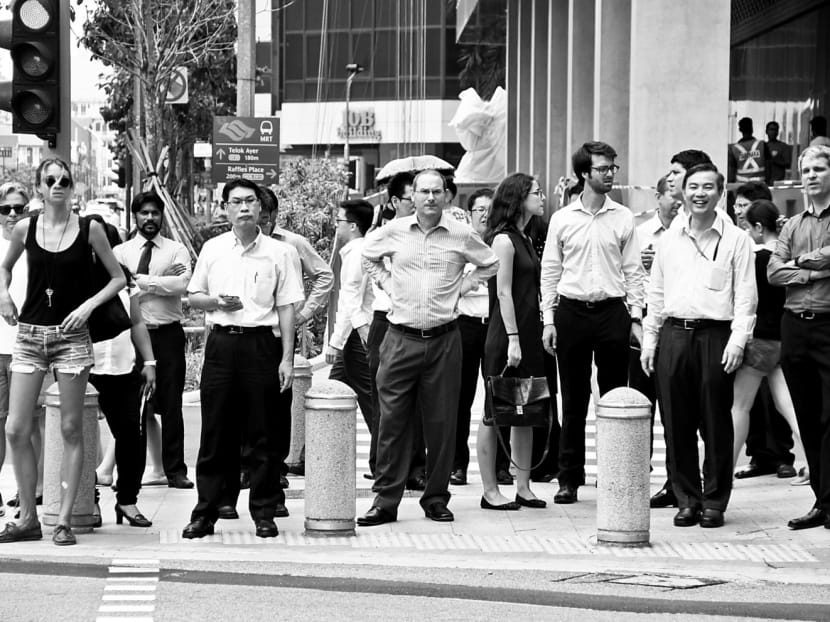A diverse workforce critical in driving growth
There has been increasing discussion in recent times around the importance of building talent diversity and inclusiveness in the workplace. Diversity typically means ensuring employees better reflect the company’s or brand’s customer base in categories such as gender, generation, ethnicity and (dis)ability (inherent diversity); and recruiting people with a wide range of skills, experiences and industry backgrounds (acquired diversity).

A PwC survey found most CEOs concur that having a diverse workforce makes good business sense in improving customer satisfaction and innovation. TODAY File Photo
There has been increasing discussion in recent times around the importance of building talent diversity and inclusiveness in the workplace. Diversity typically means ensuring employees better reflect the company’s or brand’s customer base in categories such as gender, generation, ethnicity and (dis)ability (inherent diversity); and recruiting people with a wide range of skills, experiences and industry backgrounds (acquired diversity).
While numerous studies have shown that diverse companies financially outperform their less diverse counterparts and, in some cases, display excess stock market returns, the general perception has been that chief executive officers traditionally are less convinced of its merits and tend to focus on other priorities.
However, the results of PwC’s latest Annual Global CEO Survey, which surveyed more than 1,300 CEOs across 22 industries, reveal that diversity is becoming a critical issue for companies in South-east Asia, as a way to boost capabilities and competitiveness.
Of the 76 South-east Asian CEOs polled, 95 per cent believe their current or future strategy to promote diversity has or will enhance business performance, while 93 per cent agree that being diverse will strengthen their reputation and attract talent.
Globally, the survey found most CEOs concur that having a diverse workforce makes good business sense in improving customer satisfaction and innovation.
A diverse workforce is becoming even more critical to drive growth as disruptive trends such as changes in regulation and enhanced competition from non-traditional rivals pose greater threats to growth. CEOs are increasingly looking to hire from different markets, industries and demographic segments, and use different recruitment channels to search for people with a wider range of skills.
While most CEOs in this region agree that diversity is important, there is a gap between what they believe and what they actually do. Only 55 per cent have a strategy to promote talent diversity, although some have plans in the pipeline.
Global CEOs fare better, with 64 per cent having a diversity plan.
Most companies are now going beyond the traditional focus of improving gender diversity to tackle issues such as unconsciously-held biases relating gender to leadership, disability to competency, gender to ambition. These companies do so by having decision-making processes that encourage divergent thinking and concrete indicators of progress that allow them to regularly assess where they stand on the diversity scale and what more they can do to keep improving.
Many organisations are also starting to look at the needs of millennials, also known as Generation Y — those born from 1980 to 1995 — who increasingly consider an employer’s diversity and equality record when deciding whether or not to work for a company.
Another focus area of many talent diversity and inclusiveness initiatives is around the acquisition of knowledge, skills and experience. This can be achieved through more international or regional mobility (short- or longer-term overseas secondments) and job rotation.
BEING INCLUSIVE
Singapore is not immune to these global shifts in talent trends. In fact, the Republic’s position in the global economy makes her well placed to leverage on these shifts to enhance her attractiveness and competitiveness as an investment location. Being an open economy, the future of Singapore will be dependent on its ability to continue to enhance its international competitiveness, support its enterprises for innovation, and internationalise.
Against this backdrop, here are two of the measures announced in Budget 2015 that will help support the growth and diversity of the talent pool.
1. Incentives for internationalisation and overseas training
To help Singaporeans gain global experiences and enhance skillsets, the Government has announced that it will enhance the Double Tax Deduction for Internationalisation scheme to cover qualifying manpower expenses incurred for Singaporeans posted to new overseas entities. This should encourage companies to continue or introduce secondment programmes, which would go a long way towards enhancing Singapore’s workforce.
2. Incentives to employ seniors.
The Government announced that it will extend more Special Employment Credit to employers to help offset the wages for workers aged above 50. This will provide much welcomed help to small and medium enterprises that employ senior citizens who are Singaporeans or permanent residents, and gives them an incentive to continue to do so.
These incentives could be complemented by others aimed at encouraging employment of people with disabilities. For instance, the Government could consider giving incentives for bosses who provide work facilities or equipment that enhance workplace integration of staff with disabilities.
These measures should encourage firms to enhance their diversity and inclusion capabilities. But they should be complemented by the businesses’ own initiatives to raise awareness on the importance of diversity within their organisations, and to introduce the necessary value-alignment and culture-change programmes.
We believe this would go a long way towards enhancing the competitiveness of Singapore companies and the local talent pool.
ABOUT THE AUTHOR:
Karen Loon is a Partner and PwC Singapore’s Diversity Leader. Lim Maan Huey is a financial services tax partner at PwC.






